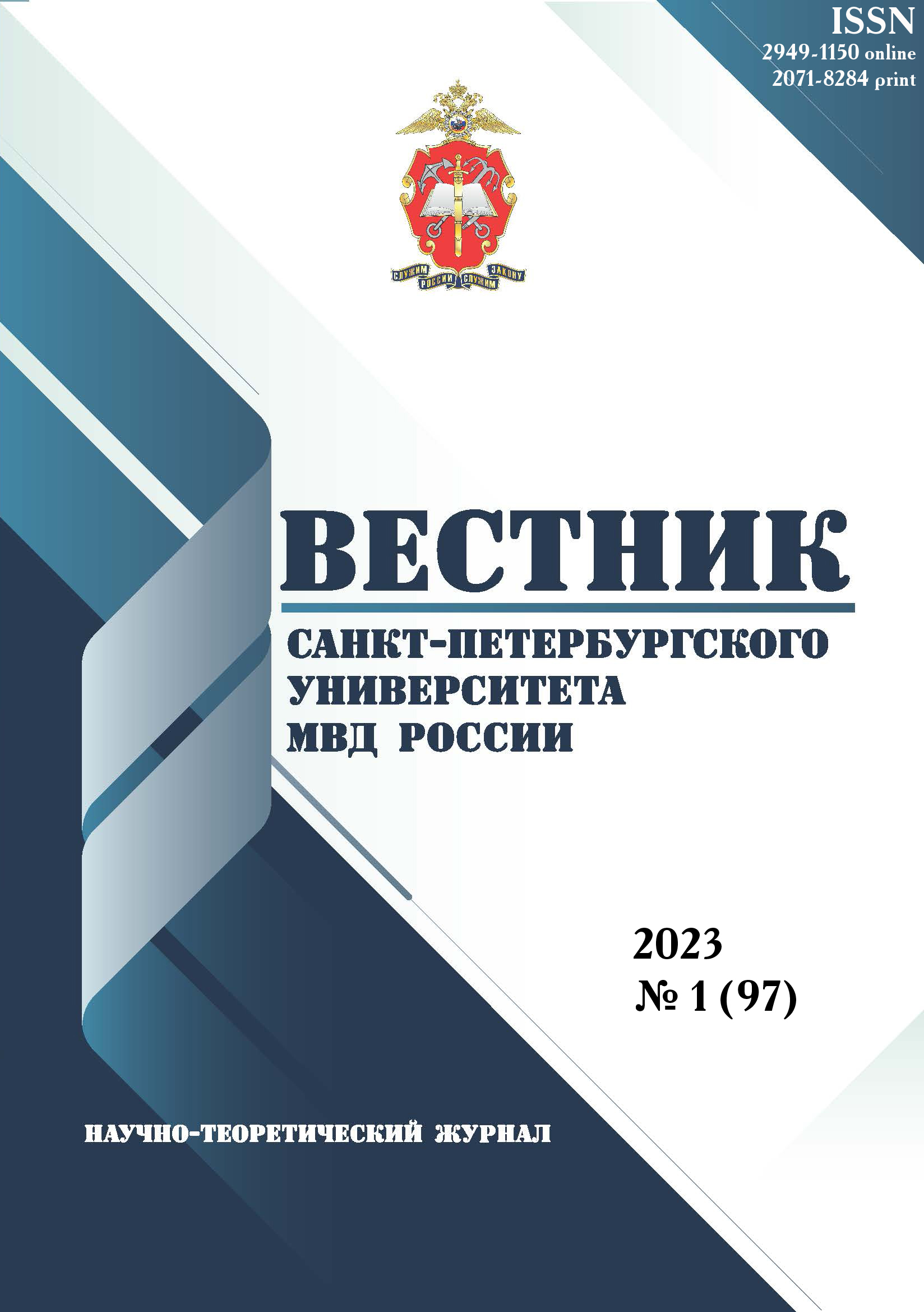from 01.01.2015 to 01.01.2023
UDC 656.7
UDC 656.7.086
Introduction. Validity checks and psychometric indicators of the final form of the questionnaire «Prognoz-3» for pilot simulator training (its corrected form) are used in professional selection for flight positions of pilots, which demonstrated sufficient discrimination on key and non-key answers when implementing the study in practical activities. The purpose of the study: to develop a specific questionnaire and confirm the main hypothesis that the analysis of the value system allows to create questionnaires that have higher psychometric indicators than traditional ones. The task: to check the psychometric indicators and validity of the measuring construct developed on the basis of the reconstruction of the semantic space, which confirmthe expected result: higher characteristics than the questionnaire measuring the same construct, but created without special analysis of meanings. Research methods and design and technological solutions: the psychometric indicators of the questionnaire and the validity of the measuring construct developed on the basis of the reconstruction of its semantic space were studied and higher characteristics were confirmed in comparison with the questionnaire measuring the same construct without using a special analysis of meanings. The results and conclusions: the development of a specific questionnaire achieved the goal of the study and confirmed the main hypothesis that the analysis of the system of values allows creating questionnaires that have higher psychometric indicators compared to traditional ones.
Discrimination, mental stability, psychometric validity verification, validation techniques, correlation links, value system analysis, questionnaire tests «Prognoz-3»
1. Anan'ev B. G. Chelovek kak predmet poznaniya. - Sankt-Peterburg: Piter, 2001. - 288 s.
2. Abul'hanova-Slavskaya K. A. Tipologicheskiy podhod k lichnosti professionala. Psihologicheskie issledovaniya problemy formirovaniya lichnosti professionala / pod red. V. A. Bodrova. - Moskva: Institut psihologii AN SSSR, 1991. - S. 110-125.
3. Aleshin V. I., Afanas'ev V. O. Sistema otobrazheniya sostoyaniya orbital'nogo kompleksa slozhnoy struktury // Kosmonavtika i raketostroenie. - 2001. - № 25. - S. 99-109.
4. Agafonov A. Yu. Osnovy smyslovoy teorii soznaniya. - Sankt-Peterburg: «Rech'», 2003. - 296 s.
5. Bodrov V. A. Psihologiya professional'noy prigodnosti. - Moskva: PER SE, 2001. - 512 s.
6. Barabanschikova V. V., Kuznecova A. S. Sovremennye tendencii v razvitii psihologicheskih issledovaniy truda i trudyaschegosya v dinamichnoy professional'noy i organizacionnoy srede // Nacional'nyy psihologicheskiy zhurnal. - 2022. - № 4 (48). - S. 3-7.
7. Bakanov A. S., Oboznov A. A. Ergonomika pol'zovatel'skogo interfeysa. - Moskva: Izd-vo Institut psihologii RAN, 2011. - 176 s.
8. Bovin B. G. Ekstremal'naya psihologiya v osobyh usloviyah deyatel'nosti: monografiya / pod nauch. red. B. G. Bovina, A. V. Kokorina, A. M. Rakova. - Moskva: Nauchno-issledovatel'skiy institut FSIN Rossii, 2015. - 514 s.
9. Beregovoy G. T., Ponomarenko V. A. Psihologicheskie osnovy obucheniya cheloveka-operatora gotovnosti k deystviyam v ekstremal'nyh usloviyah // Voprosy psihologii. - 1983. - № 1. - S. 51- 58.
10. Berkovic L. Agressiya: prichiny, posledstviya i kontrol'. - Sankt-Peterburg: praym-Evroznak, 2001. - 512 s.
11. Benson A. D. Prostranstvennaya dezorientaciya v polete // Problemy psihologii i ergonomiki. - 2003. - № 5. - S. 42-46.
12. Voronov I. A. Ekstremal'naya psihologiya: kompleksnyy podhod: monografiya. - Sankt-Peterburg: ChOUVPO SPbIPiA, 2012. - 146 s.
13. Voronov I. A. Teoriya i profilaktika oshibok prinyatiya resheniy sredstvami psihotehnologii «Pul'sar» / Uchenye zapiski universiteta imeni P. F. Lesgafta. - 2018. - № 1 (155). - S. 287-291.
14. Vil'ver P. Yu., Yurin A. Yu. Specializirovannyy programmnyy kompleks «AST» dlya sozdaniya trenazherov // Programmnye produkty i sistemy. - 2016. - № 3 (115) [Elektronnyy resurs] // Cyberleninka.ru: sayt. - URL: https://cyberleninka.ru/article/n/spetsializirovannyy-programmnyykompleks-ast-dlya-sozdaniya-trenazherov (data obrascheniya: 24.01.2023).
15. Golikov Yu. Ya. Koncepcii adaptivnoy avtomatizacii i podhody k cheloveku i tehnike dlya sovremennyh cheloveko-mashinnyh kompleksov // Psihologiya adaptacii i social'naya sreda: sovremennye podhody, problemy, perspektivy / otv. red. D. G. Dikaya, A. L. Zhurashlec. - Moskva: Izd-vo «Institut psihologii RAC», 2007. - S. 392-408.
16. Maklakov A. G. Chelovek v ekstremal'nyh usloviyah deyatel'nosti // Vestnik LGU im. A. S. Pushkina. - 2020. - № 4. - S. 165-179.
17. Dvornikov M. V., Suholitko V. A. Problemy razrabotki i vnedreniya aktivnoy sistemy bezopasnosti poletov // Problemy psihologii i ergonomiki. - 2003. - № 5. - S. 33-42.
18. L'vov V. M. Problema bezopasnosti poletov i ergonomicheskie tehnologii. Problemy psihologii i ergonomiki. - 2003. - № 5. - S. 22-26.
19. Lomov B. F., Zabrodin Yu. M. Psihologicheskie problemy deyatel'nosti v osobyh usloviyah. - Moskva: Nauka, 1985. - 231 s.
20. Medenkov A. A. Obespechenie bezopasnosti manevrennyh poletov // Problemy psihologii i ergonomiki. - 2003. - № 5. - S. 46-51.
21. Mendelevich V. D. Test anticipacionnoy sostoyatel'nosti (prognosticheskoy kompetentnosti) - eksperimental'no-psihologicheskaya metodika dlya ocenki gotovnosti k nevroticheskim rasstroystvam // Social'naya i klinicheskaya psihiatriya. - 2003. - № 1. - S. 35-40.













